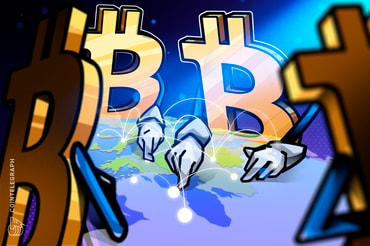Record Drop in Ethereum Gas Fees Marks Historically Bullish Signal For ETH, Analyst Says

A steep drop in fees paid to transact on the Ethereum could spell a bullish sign for the network’s underlying ether (ETH) tokens, one analyst said, citing historical data.
“Every time ETH gas fees drop to rock bottom has often signaled a price bottom in the mid-term,” Ryan Lee, chief analyst at Bitget Research, in Friday note to CoinDesk. “ETH prices tend to strongly rebound after this cycle, and when this moment coincides with an interest rate cut cycle, the market’s wealth effect is full of possibilities.”
Gas refers to the necessary cost a user must pay to perform a transaction on the network. Fees dipped as low as 0.6 gwei (a unit of gas) earlier this week with low-priority transactions costing only 1 gwei or lower – a rare occurrence in recent years. The fees represent a more than 95% drop from the 83.1 gwei levels in March, when the network saw a spike in activity.
Lack of demand for Ethereum block space and a preference for using applications on other blockchains has likely led to the drop in fees, Lee said.
“The drop in Ethereum’s gas fee prices to a five-year low can be attributed to the migration of meme season and Dapp interactions to other faster and cheaper blockchains like Solana and Layer 2, as well as the long-awaited Dencun upgrade that had improved the network efficiency and, therefore, reduced the gas fees,” he explained.
Dencun refers to two majors updates from March that changed how transactions were processed and validated on the Ethereum network. Since July, Solana-based application Pump has pocketed more fees than the entire Ethereum network in a single 24-hour period on a few occasions, most recently on August 13.
Meanwhile, the lower amount of ether (ETH) being burned due to lower fees means that the token’s supply has begun to increase.
Data shows that nearly 16,000 ETH, or nearly $42 million at current prices, was added to ether’s total supply over the past week, pushing supply on track grow 0.7% this year.
Edited by Oliver Knight.
Disclosure
Please note that our privacy policy, terms of use, cookies, and do not sell my personal information has been updated.CoinDesk is an award-winning media outlet that covers the cryptocurrency industry. Its journalists abide by a strict set of editorial policies. In November 2023, CoinDesk was acquired by the Bullish group, owner of Bullish, a regulated, digital assets exchange. The Bullish group is majority-owned by Block.one; both companies have interests in a variety of blockchain and digital asset businesses and significant holdings of digital assets, including bitcoin. CoinDesk operates as an independent subsidiary with an editorial committee to protect journalistic independence. CoinDesk employees, including journalists, may receive options in the Bullish group as part of their compensation.
Shaurya is the Deputy Managing Editor for the Data & Tokens team, focusing on decentralized finance, markets, on-chain data, and governance across all major and minor blockchains.

Published on Other News Site












